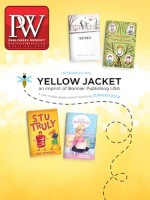In Reporter (Knopf, June), investigative journalist Hersh recalls covering huge stories, from the Vietnam War’s My Lai massacre to the present-day “war on terror.”
What’s the hardest story you ever had to report?
The hardest emotionally was My Lai. I was dealing with people doing horrible things, killing women and children. I had a three-year-old son at home, and it was just so personal in a way, so grotesque.
How did you get American soldiers who participated in the massacre to talk about it?
You think they felt good about what they did? No matter how depraved they were at that time, and how crazed they were from the war, when an officer says to start opening fire on people in a ditch, you know that’s wrong, even if you do it. So when I went to them later and said, “Tell me what the hell happened,” they wanted to talk—it was expiation.
You pioneered a tougher, less trusting style of journalism. What sent you down that path?
When I covered the Pentagon for the Associated Press in 1966, Harrison Salisbury at the New York Times reported massive U.S. bombing of North Vietnam. The government denied it, but my sources—a three-star admiral and a two-star Air Force general—told me, “they’re lying.” I wrote stories about it and got in trouble with [Defense Secretary Robert] McNamara and others for challenging their integrity, but they were lying. That was important.
You worked with famous editors such as Abe Rosenthal at the New York Times and David Remnick at the New Yorker, but you fell out with them. Why can’t you get along with editors?
Reporters like me, what we do for a living is we walk into the editor’s office on a nice sunny day, throw a dead rat full of lice and fleas on the desk, and say, “I want to go report this. It may cost you customers, it’ll cost you a lot of money, and I may not get the story.” It’s inevitable that you wear out an editor—you just wear them out! I’m mouthy, too, so there you are.



 Volume 265
Issue 16
04/16/2018
Volume 265
Issue 16
04/16/2018





